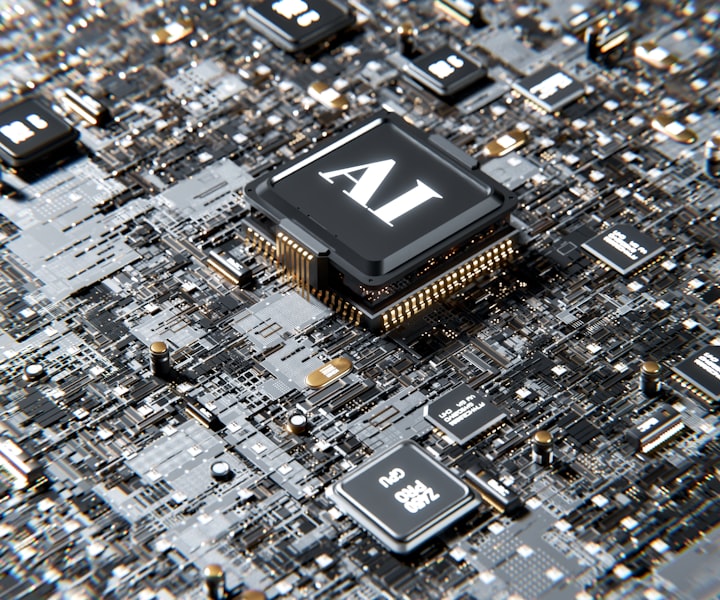The Future of AI Technology Unveiled
Navigating the Future Landscape of AI: Opportunities, Challenges, and Ethical Considerations

Introduction to AI Technology
Artificial Intelligence (AI) has come a long way from its inception, revolutionizing industries and societies across the globe. Let's delve into the definition, evolution, applications, and impact of AI technology.

Definition and Evolution of AI
AI refers to the simulation of human intelligence processes by machines, including learning, reasoning, and problem-solving. Its roots trace back to the 1950s when the concept of AI was first introduced, leading to remarkable advancements over the years.
Applications of AI in Various Sectors
AI finds applications in diverse sectors such as healthcare, finance, transportation, and entertainment. From predictive analytics to autonomous vehicles, AI is reshaping the way we work and live.
Impact of AI on Society and Economy
The integration of AI technology has the potential to boost productivity, drive innovation, and create new job opportunities. However, concerns about privacy, security, and ethical implications have also emerged.
Advancements in AI Technology
Recent breakthroughs in AI technology have propelled its capabilities to new heights, paving the way for unprecedented developments in various domains.

Machine Learning and Deep Learning
Machine learning and deep learning are subsets of AI that enable systems to learn from data, recognize patterns, and make decisions without explicit programming. These techniques power recommendation systems, image recognition, and more.
Natural Language Processing and Computer Vision
Natural Language Processing (NLP) facilitates communication between humans and machines through text and speech analysis. Computer Vision, on the other hand, enables machines to interpret and understand visual information.
Robotics and Automation
AI-driven robotics and automation are transforming industries by enhancing efficiency, precision, and safety. From manufacturing plants to healthcare facilities, robots are revolutionizing the workforce.
Challenges and Ethical Considerations
Despite its vast potential, AI technology raises significant challenges and ethical considerations that must be addressed to ensure responsible development and deployment.

Privacy and Data Security Concerns
The collection and utilization of vast amounts of data by AI systems raise concerns about privacy breaches, data security, and surveillance. Safeguarding sensitive information is crucial in the digital age.
Bias and Fairness in AI Algorithms
AI algorithms can perpetuate biases present in training data, leading to discriminatory outcomes. Ensuring fairness and transparency in algorithmic decision-making is essential to mitigate such risks.
Regulatory and Policy Frameworks
The absence of comprehensive regulations and policies governing AI technology poses challenges in addressing its ethical, legal, and societal implications. Establishing robust frameworks is imperative to guide the responsible use of AI.
Future Trends in AI Technology
As AI continues to advance rapidly, several emerging trends are shaping the future landscape of AI technology, offering new possibilities and capabilities.

Explainable AI and Transparency
Explainable AI aims to enhance the interpretability and accountability of AI systems, enabling users to understand how decisions are made. Transparency in AI algorithms is crucial for building trust and ensuring ethical practices.
Quantum Computing and AI Integration
The integration of quantum computing with AI holds the promise of revolutionizing data processing, enabling faster computations, and solving complex problems that are beyond the reach of classical systems.
Human-AI Collaboration and Augmentation
The future of AI technology envisions seamless collaboration between humans and machines, leveraging the strengths of both to enhance productivity, creativity, and decision-making. AI augmentation empowers individuals to perform tasks more efficiently and effectively.
Implications of AI Technology in the Future
The rapid evolution of AI technology carries profound implications for society, economy, and individuals, necessitating proactive measures to harness its benefits while mitigating potential risks.

Job Displacement and Reskilling Opportunities
The automation of tasks and roles by AI may lead to job displacement in certain sectors, necessitating reskilling and upskilling initiatives to adapt to the changing job landscape. Embracing lifelong learning is key to navigating the future of work.
Socioeconomic Inequality and Digital Divide
AI technology has the potential to exacerbate existing socioeconomic disparities, widening the digital divide between those with access to advanced technologies and those without. Addressing these disparities requires inclusive policies and equitable distribution of resources.
Possibilities for Healthcare, Education, and Environment
AI technology offers transformative opportunities in healthcare, education, and environmental conservation through enhanced diagnosis and treatment, personalized learning experiences, and sustainable practices. Leveraging AI for social good can drive positive change in these critical domains.
Summary
The future of AI technology holds immense potential to transform industries, improve efficiency, and enhance human capabilities. However, it also presents significant challenges related to ethics, privacy, and regulation. As AI continues to advance, it is crucial for society to address these issues proactively and harness the benefits of AI in a responsible and equitable manner.
FAQs
How is AI technology different from conventional computing?
AI technology involves cognitive functions and decision-making processes that mimic human intelligence, unlike traditional computing focused on executing predefined tasks.
What are the key ethical concerns surrounding AI technology?
Some ethical considerations include bias in algorithms, privacy infringements, and the impact of AI on job displacement and socioeconomic inequality.
How can individuals prepare for the future of AI technology?
To adapt to the evolving landscape of AI, individuals can engage in continuous learning, develop critical thinking skills, and stay informed about emerging technologies and their implications.





Comments
There are no comments for this story
Be the first to respond and start the conversation.